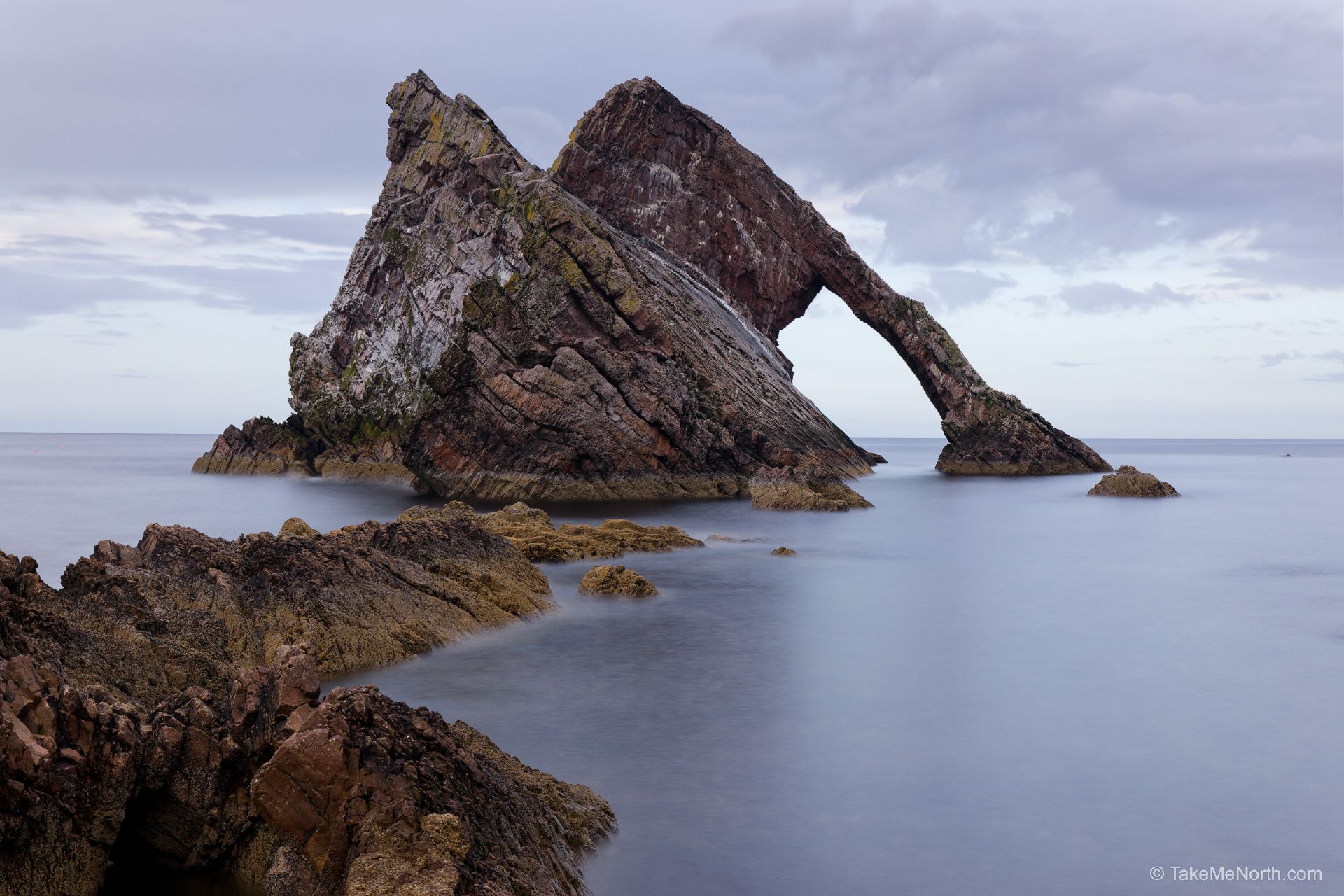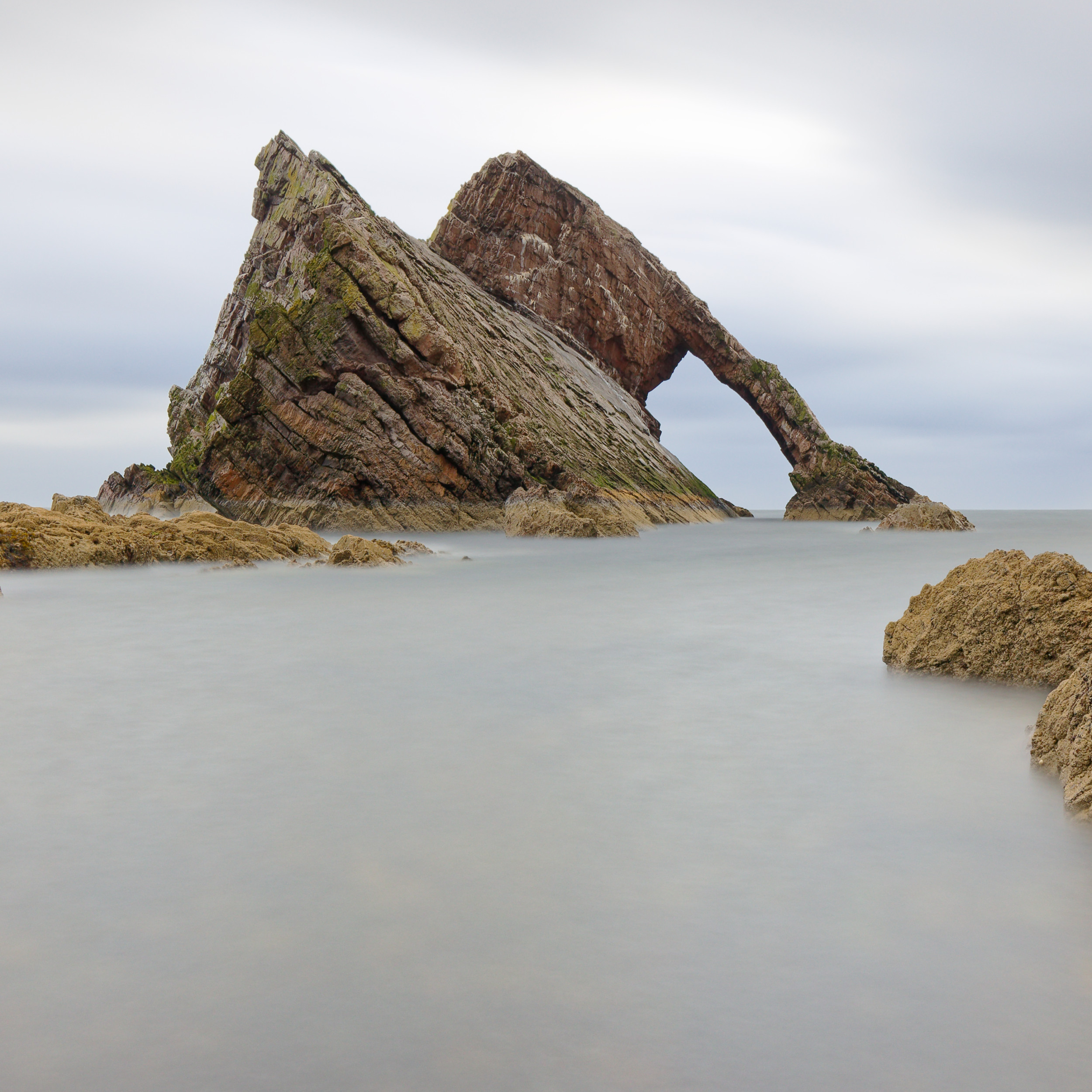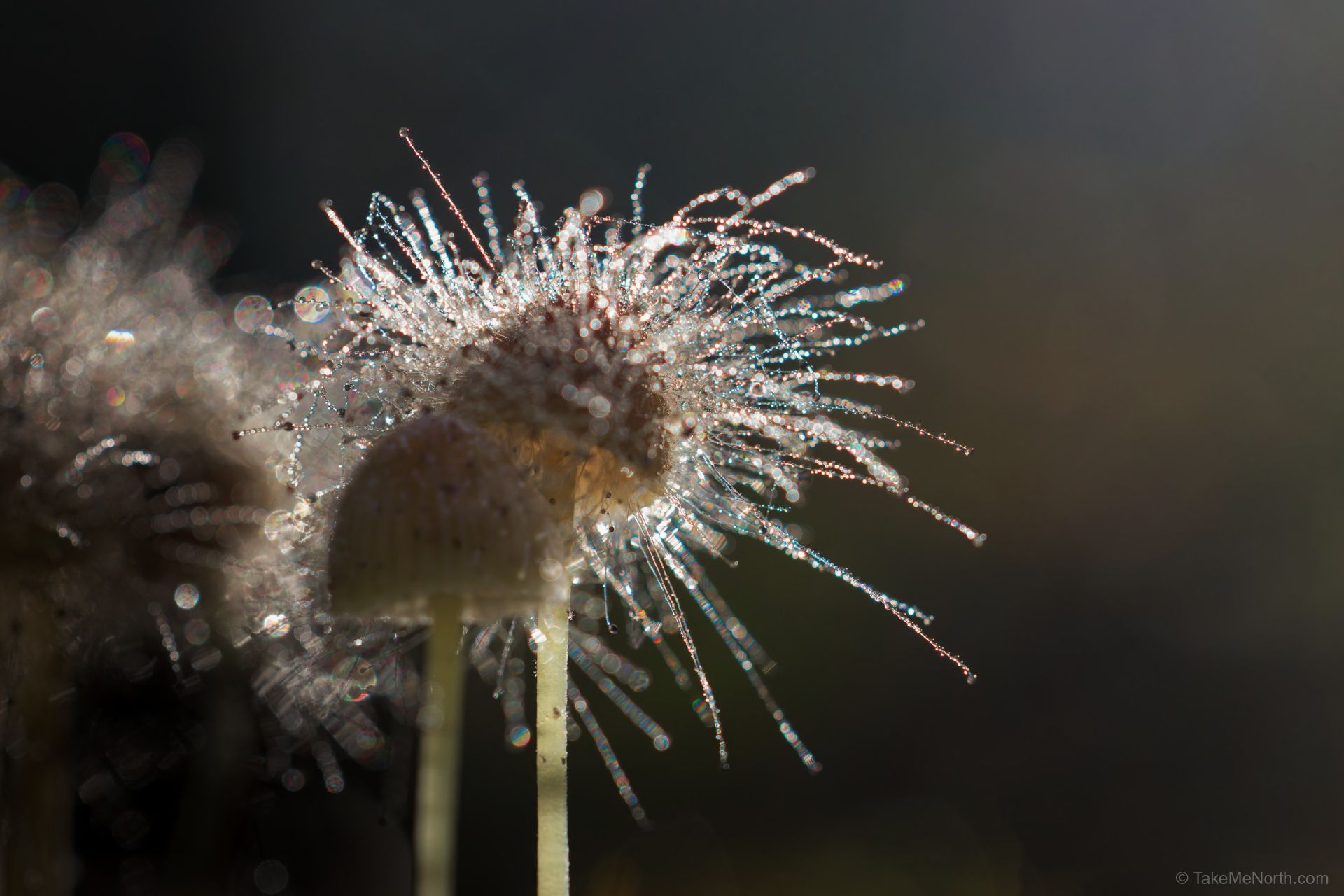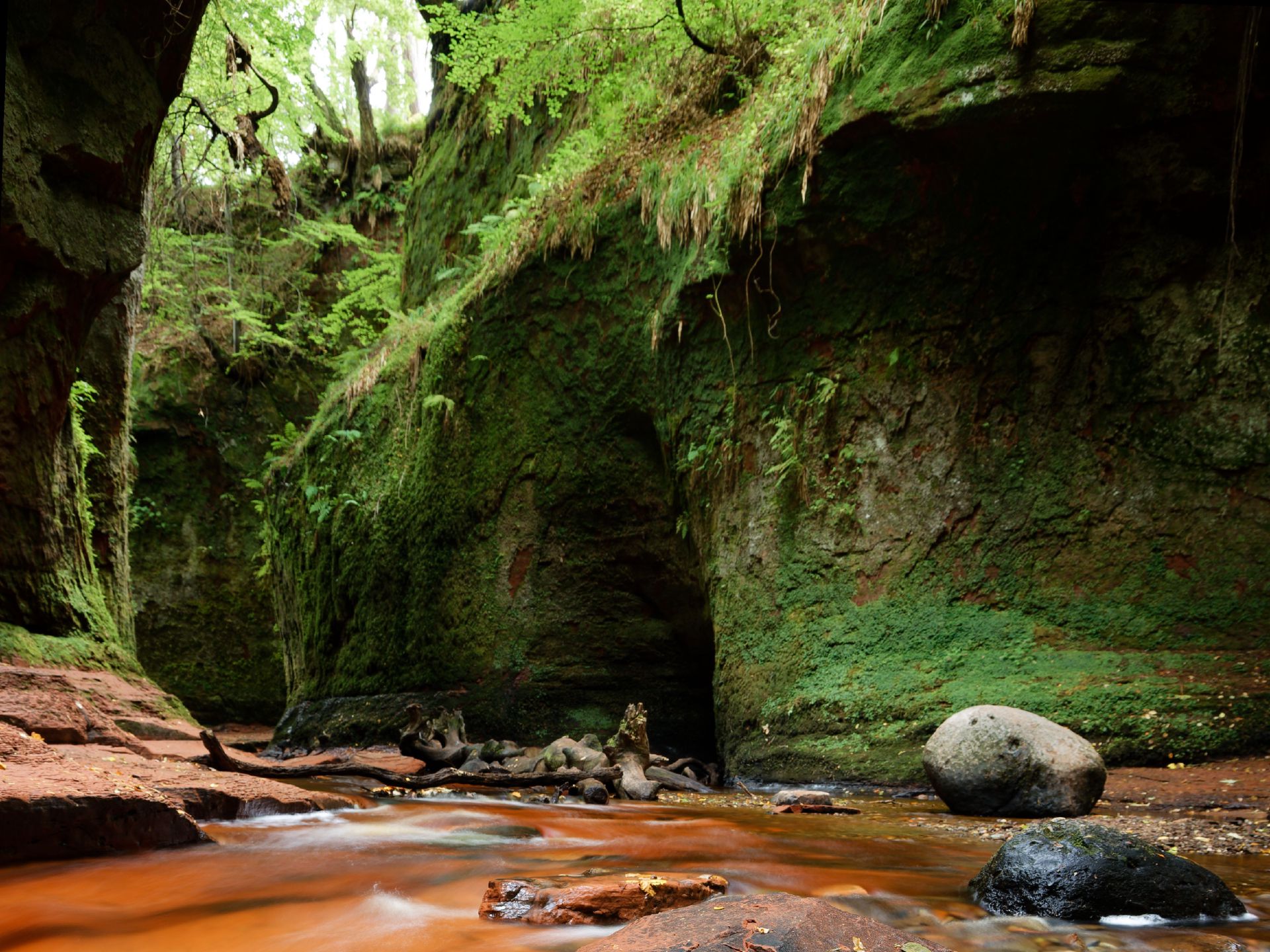Bow Fiddle Rock: A Geological Marvel
Nestled along the rugged coastline of Portknockie in Moray, Scotland, lies Bow Fiddle Rock, a stunning natural rock formation that faintly resembles the tip of a violin bow. This unique geological feature is not only a photographer’s highlight but also a fascinating example of the Earth’s dynamic history.
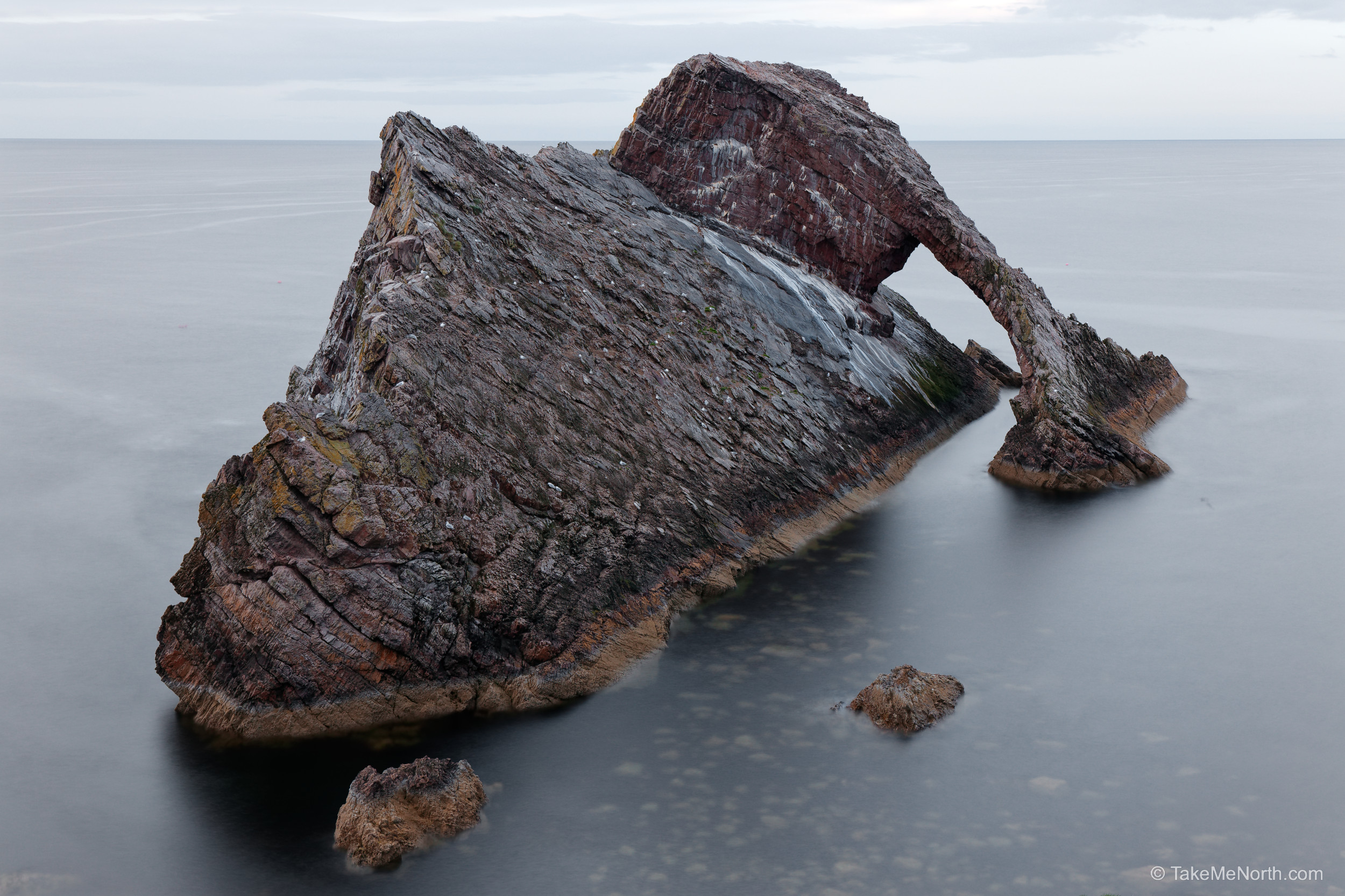
Bow Fiddle Rock seen from the Moray Coast Trail
Geological Formation
Bow Fiddle Rock is composed of quartzite, a metamorphic rock that was originally quartz sandstone. Over millions of years, the sandstone was subjected to intense heat and pressure, causing the silica grains to fuse together and form the harder quartzite. This transformation occurred during the Neoproterozoic Era, approximately 1,000 to 539 million years ago.
Tectonic Activity and Erosion
The rock is part of the Cullen Quartzite formation, which stretches along the coast between Buckie and Cullen. The formation was created when the ancient continents of Laurentia and Avalonia collided during the Caledonian orogeny, causing the rocks to fold and rise to the surface. Over time, the relentless forces of wind and sea eroded the softer rock, leaving behind the striking arch we see today.
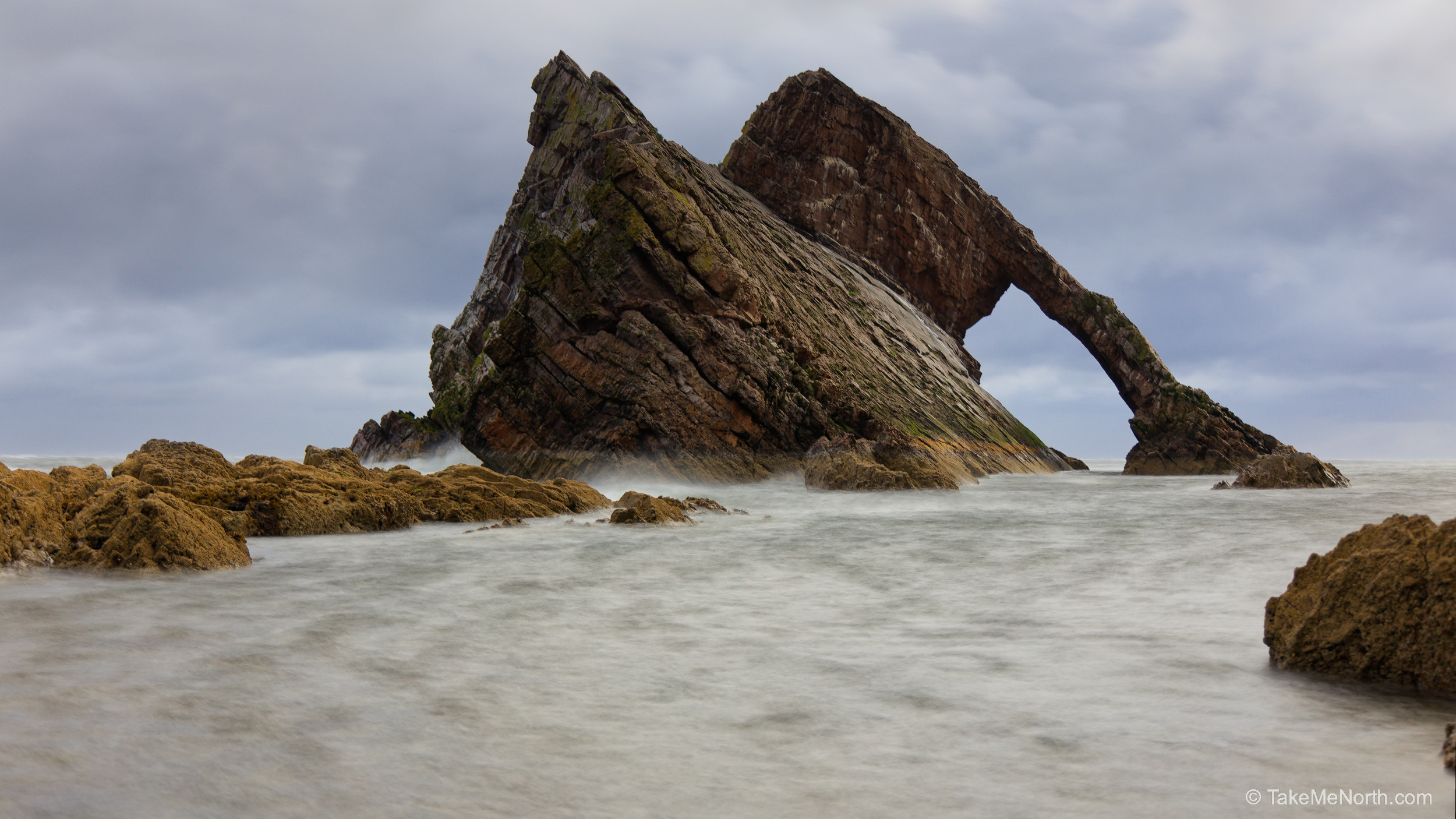
The wind creating patterns in the seas around Bow Fiddle Rock
Natural Beauty and Wildlife
Bow Fiddle Rock is not just a geological wonder; it also serves as an important nesting site for sea birds such as herring gulls, great black-backed gulls, and lesser black-backed gulls . The area around the rock is a haven for wildlife, with bottle-nosed dolphins and porpoises often seen feeding in the waters nearby.
Visiting Bow Fiddle Rock
The area is popular among kayakers, who can navigate through the rock arch during high tide. For hikers, The Moray Coast Trail, a 72km long pathway along the Moray Firth offers breathtaking views of the rock and the surrounding landscape. For those who just want to have a quick view at Bow Fiddle Rock, it is easily accessible via a short path in Portknockie. There is a free car park right at the cliffs, which has room for about a dozen cars.
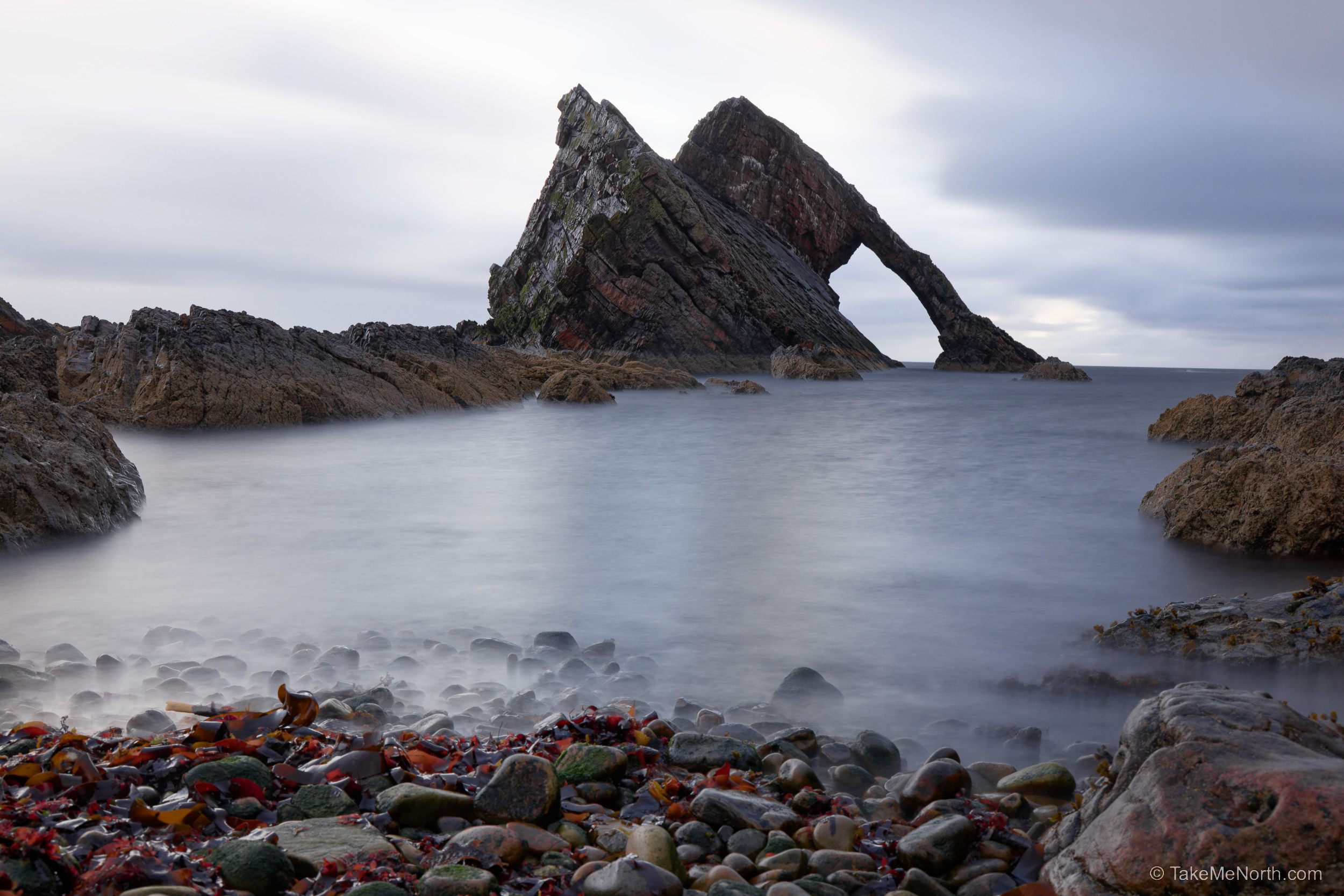
The view at Bow Fiddle Rock from the cobble beach in Portknockie
